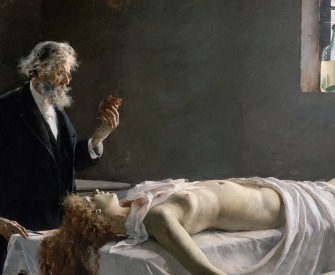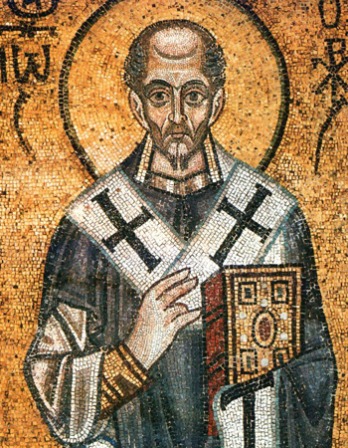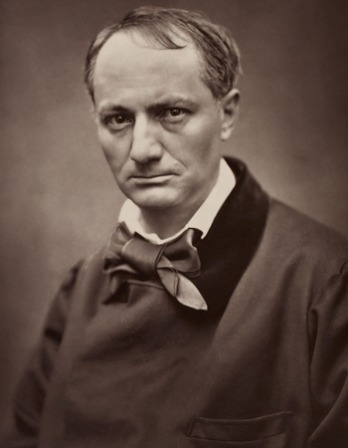Once St. Francis had been invited to stay as the guest of Leo, cardinal of Santa Croce, and he spent some days at his house. But one night demons visited him and gave him a fearful beating. Francis called his companion, told him what had happened and explained, “These demons are the agents of our Lord, sent by him to punish our transgressions. Now I cannot recall any offense that I have not washed clean through God’s mercy and by doing penance, but perhaps he has permitted his agents to assault me because I am a guest in the courts of the mighty, and this could arouse nasty suspicions in my poor little brothers who may think I am living in the lap of luxury!” So, as soon as it was light, he got up and left the place.
Once while he was at prayer he heard whole troops of demons running over the roof of the monastery and making a terrible din. He got up and went outside, and crossing himself, he said, “In the name of Almighty God, you demons, do all that is within your power to my body, do your worst. I will willingly endure it all, because I have no greater enemy than my body, and when you vent your fury on it, you will be doing me a service and avenging me on my adversary.” At this the demons disappeared in confusion.
In a vision, the servant of God once saw above him a crucified seraph, who imprinted the marks of his crucifixion on Francis so clearly that he, too, seemed to have been crucified. His hands and feet and side were marked with the prints of the cross, but Francis took great pains to hide these stigmata from everyone else. There were a few who saw these marks while he was still alive, though nothing to compare with the large numbers who saw them after his death.
That these marks were really the stigmata was proved by many miracles: suffice it to mention here just two of them, which happened after Francis’ death. In Apulia a man named Roger was standing before a painting of St. Francis when he began to wonder whether it could really be true that Francis had been blessed by this miracle, or whether it had merely been a pious illusion, or a deliberate fraud on the part of his friars. As he pondered these thoughts, he heard a sudden sound, like a bolt shot from a crossbow, and felt a stinging wound in his left hand, though he could see no hole in his glove. But when he removed the glove he discovered on the palm of his hand a deep wound such as an arrow might make; it seemed to be on fire, and burned him so cruelly that he all but fainted with the pain. Immediately he regretted his doubts and declared that he believed absolutely in St. Francis’ stigmata; and two days later, after imploring the saint’s aid “by his stigmata,” his wound was instantly healed.
The second miracle happened in the kingdom of Castile. A man who was devoted to St. Francis was hurrying off to compline one evening when he was set upon by an assassin who had mistaken him for someone else. He was mortally wounded and left half dead. As he lay there, the brutal murderer drove his sword so far into his throat that he was unable to pull it out again, and had to leave it and go. People came running from every direction, and there was a great hue and cry, everyone weeping and wailing as if the man were dead. But at midnight, when the monastery bell sounded for matins, the man’s wife called out, “Up you get, sir, off to matins, the bell is calling you!” At once the man raised his hand as if he were gesturing to someone to pull the sword from his throat, and as people looked on in amazement, the sword came out and flew through the air into the distance as if flung by the hand of some prizefighter. Immediately the man was perfectly well again, and he got to his feet and said, “Blessed Francis came to me and held his stigmata to my wounds, and their sweetness soothed all the pain away, and my wounds closed miraculously at their touch! He was on the point of going, but I gestured to him to draw out the sword, because otherwise I could not speak. He grasped it, gave a mighty pull and set it flying away; then he gently brushed the wounds on my throat with his holy stigmata and at once they were completely healed.”
Blessed Francis was full of dovelike simplicity and exhorted all creatures to love their Creator; he preached to the birds and they listened to him; they allowed him to touch them and never left him until he gave them his permission. Once when he was preaching, some swallows were twittering, and at his command they instantly fell silent. At the Portiuncula church, a cicada used to perch on a fig tree by his cell and sing incessantly, so the man of God held out his hand and called to her, “Sister cicada, come here to me.” At once the cicada obediently hopped on to his hand. “Sing, sister cicada,” Francis said, “and give praise to your Lord!” And the cicada immediately began to sing and flew off only when Francis gave her leave.
Once Francis came upon a great flock of birds and greeted them as if they were endowed with reason. “My brother birds,” he said, “you really ought to sing the praises of your Creator, who has clothed you with feathers, given you wings to fly with, granted you the clean, fresh air, and directs your lives so that you have no care at all.” The birds began to stretch their necks toward him, to spread their wings, open their beaks, and look at him intently. Francis walked through their midst and, as he did so, brushed them with his cloak, yet not a single one of them moved until he gave his permission, and then they all flew away together.
© 1998 Christopher Stace. Used with permission of Penguin Books Ltd.
From the Golden Legend. Born near Genoa around 1229, Jacobus entered the Dominican order in 1244, completed his lives of saints around 1266, and served as the archbishop of his birthplace from 1292 until his death in 1298.
St. Francis had been canonized shortly before the birth of Jacobus. Following the “Primitive Rule”—“to follow the teachings of our Lord Jesus Christ and to walk in his footsteps”—St. Francis led a life of poverty and called all creatures his “brothers” and “sisters.”
Back to Issue





